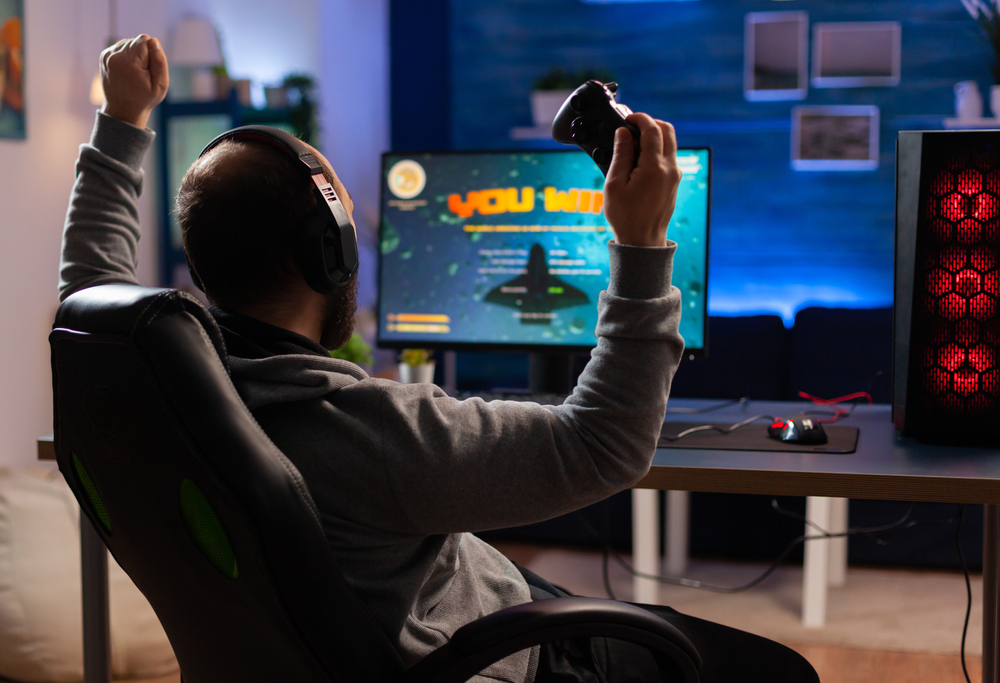The long-discarded idea that video games are only for entertainment has changed significantly in recent years. According to research, these digital hobbies offer numerous advantages that go well beyond the confines of screens and are crucial in forming cognitive abilities. This investigation seeks to analyze the various ways that video games aid in cognitive development while simultaneously recognizing the subtleties and concerns surrounding this dynamic story.
Problem-Solving Capabilities: An Online Mind Gym
A maze of tasks and puzzles that fosters critical thinking and problem-solving abilities is at the core of video games. Players are placed in challenging situations where they must act quickly and strategically. This dynamic environment turns into an online gym where one can hone analytical skills and develop a knack for practical solutions that go beyond the screen.
Using Visualization and Spatial Awareness to Navigate Three-Dimensional Worlds
Video games’ virtual environments, which are frequently three-dimensional and immersive, stimulate improved visualization and spatial awareness. Getting around these complex environments becomes a mental workout with practical applications. There is no denying that playing video games has a positive effect on spatial cognition, from enhanced navigational abilities to higher performance in domains like architecture and engineering.
Focus and Attention: The Skill of Multitasking
In the context of gaming, paying attention is an actively developed skill rather than a passive trait. A lot of video games require players to maintain sustained focus while juggling multiple elements at once. As a result, there is an increase in concentration and attention span, which are beneficial in academic and professional contexts where multitasking is frequently essential.
Eye-Hand Coordination: Accuracy in Pixels, Expertise in Reality
The combination of physical movements and visual cues found in action-packed video games is a powerful stimulant for hand-eye coordination. Players’ fine motor skills are honed as they perform split-second decisions and precise maneuvers. Benefits go beyond the screen; they help with increased dexterity in a variety of daily tasks.

Cognitive Flexibility: Adjusting to Changing Situations
Players must quickly adapt to the dynamic and constantly changing scenarios that are presented in video games. This promotes cognitive flexibility, or the capacity to fluidly transition between tasks and mental operations. Players gain mental agility in the fast-paced virtual worlds that can come in handy in real-world scenarios where flexibility is required.
Limitations and Concerns: Getting Through the Virtual Minefield
This trip through the digital world is not without its difficulties, though. Overindulgence in screens becomes a warning specter that ruins sleep cycles, physical health, and general wellbeing. Therefore, the secret is to find a careful balance between the advantages of gaming and any potential disadvantages, making sure that the appeal of pixels doesn’t overshadow the value of a varied and well-rounded lifestyle.
Violence and Content: An Appeal for Guardianship
One deeply troubling issue is content, specifically the presence of violence and inappropriate themes in some video games. It becomes imperative for parents to provide vigilant guidance, highlighting the significance of keeping an eye on the games that their children are playing. Games should be age-appropriate according to the player’s maturity level to protect psychological growth.
Prospective Studies and Consequences: Charting Unknown Grounds
The ship sails into unknown waters as the winds of progress catch the sails of video game research. Subsequent research endeavors could shed light on the enduring effects of gaming on cognitive abilities, distinguish the advantages of particular game genres, and elucidate the social and cognitive consequences of cooperative and multiplayer gaming.
Applications in Education: Video Games as a Teaching Tool
A paradigm shift has occurred in education as a result of the realization that video games have cognitive benefits. A new pedagogical ally is gamification—the integration of game elements into non-gaming contexts. These days, educational games provide a dynamic environment where students can learn important skills and stay genuinely interested in what they are studying.
Parental Guidance: The Ship’s Captain
Parents are the compass for responsible gaming because they are the captains guiding their kids through the digital waters. It’s critical to have open lines of communication, set screen time limits, and get involved in your child’s gaming activities. By doing this, parents can make sure that the virtual journey contributes to their child’s overall development rather than hinders it.

Diverse Gaming: The Cognitive Development Palette
Not every game is made of the same materials. Different game genres concentrate on particular cognitive abilities. For example, strategy games develop strategic thinking, action games improve reflexes and coordination, and puzzle games foster problem-solving skills. Acknowledging this diversity gives players the ability to select games that fit their own objectives for cognitive development.
Conclusion: Creating the Future of Cognitive Development
Video games have evolved into powerful tools that influence cognitive development in a variety of ways. Playing video games can yield a wealth of cognitive advantages if done so in moderation and with mindfulness. A balanced approach to gaming becomes crucial as technology advances irreversibly, guaranteeing that the benefits outweigh any potential drawbacks. We are not just participants in this dynamic environment; rather, we are the designers of cognitive development, creating a future in which neurons and pixels synchronize in perfect harmony.
